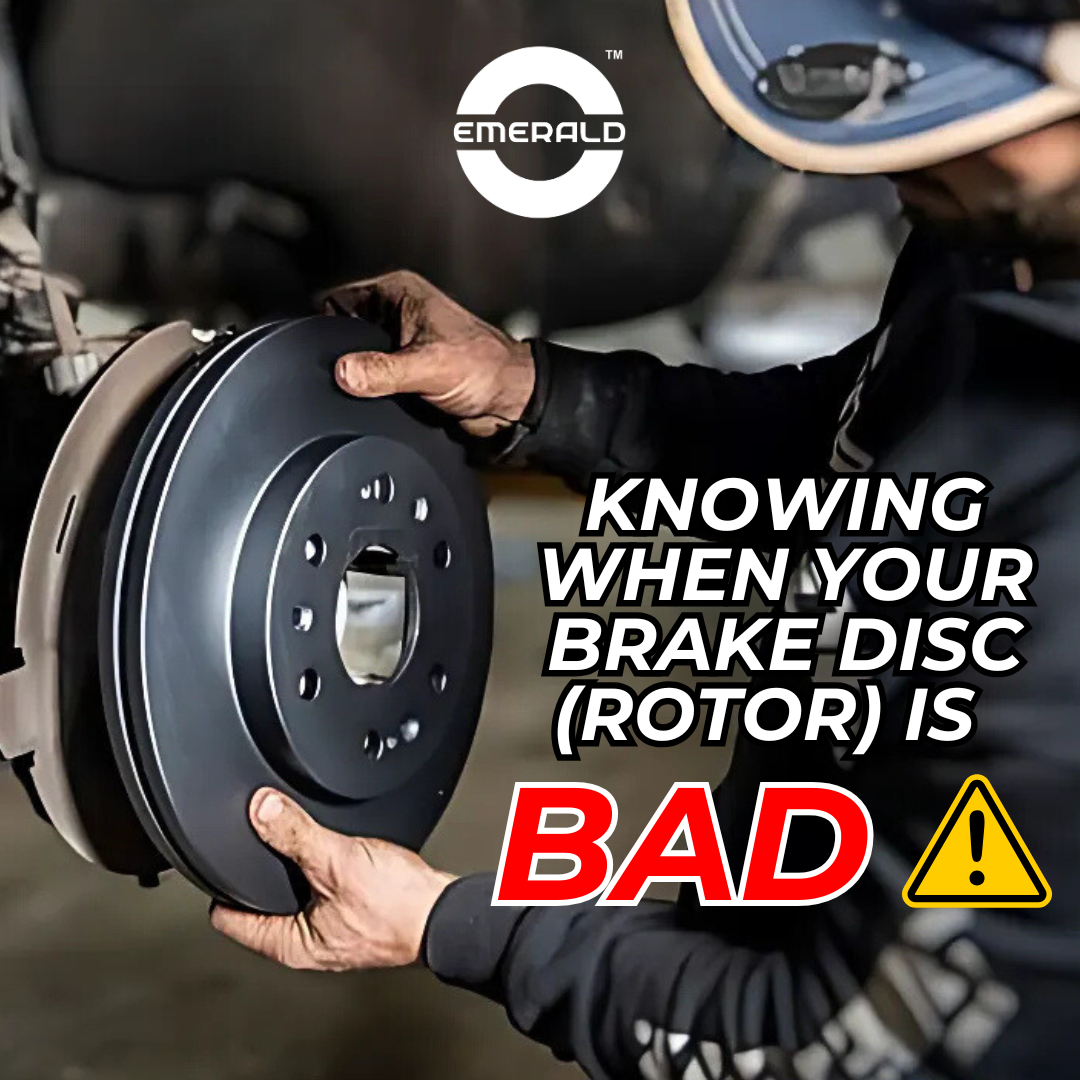
Knowing When Your Brake Disc (Rotor) is Bad is Essential for Maintaining Vehicle Safety.

Here are some common signs that indicate your brake discs may need attention or replacement:
1. Squealing or Squeaking Noise
- High-pitched noises when braking could indicate uneven wear, glazing, or damage to the brake disc surface.
- Often caused by worn brake pads, but it can also signal issues with the rotor.
2. Vibration or Shaking
- If you feel vibrations or pulsation in the brake pedal or steering wheel while braking, it could mean the brake disc is warped.
- Warping occurs due to excessive heat or uneven wear.
3. Visible Damage or Wear
- Inspect your brake discs through the wheel spokes or by removing the wheel.
Look for:
- Deep grooves or scoring on the disc surface.
- Cracks or visible damage.
- Excessive rust (a light surface layer is normal but heavy rust can compromise functionality).
4. Reduced Braking Performance
- A longer stopping distance or less responsive brakes could be a sign of disc wear.
- Worn discs may not generate enough friction to stop the car effectively.
5. Grinding Noise
- A loud grinding noise suggests the brake pads are completely worn out and the metal backing is rubbing against the disc.
- This can cause severe damage to the rotor.
6. Uneven Brake Pad Wear
- When replacing brake pads, uneven wear can indicate that the discs are not flat or are warped.
- If one side of the brake pad is thinner than the other, the rotor might need resurfacing or replacement.
7. Blue Discoloration
- Overheating the brake discs can cause a blue or purple tint.
- This usually results from hard braking or riding the brakes for extended periods.
8. Dashboard Warning Light
- Some vehicles have a brake warning light that may indicate issues with the braking system, including the discs.
Contact Us Today!
WhatsApp: +60 12-638 9647
